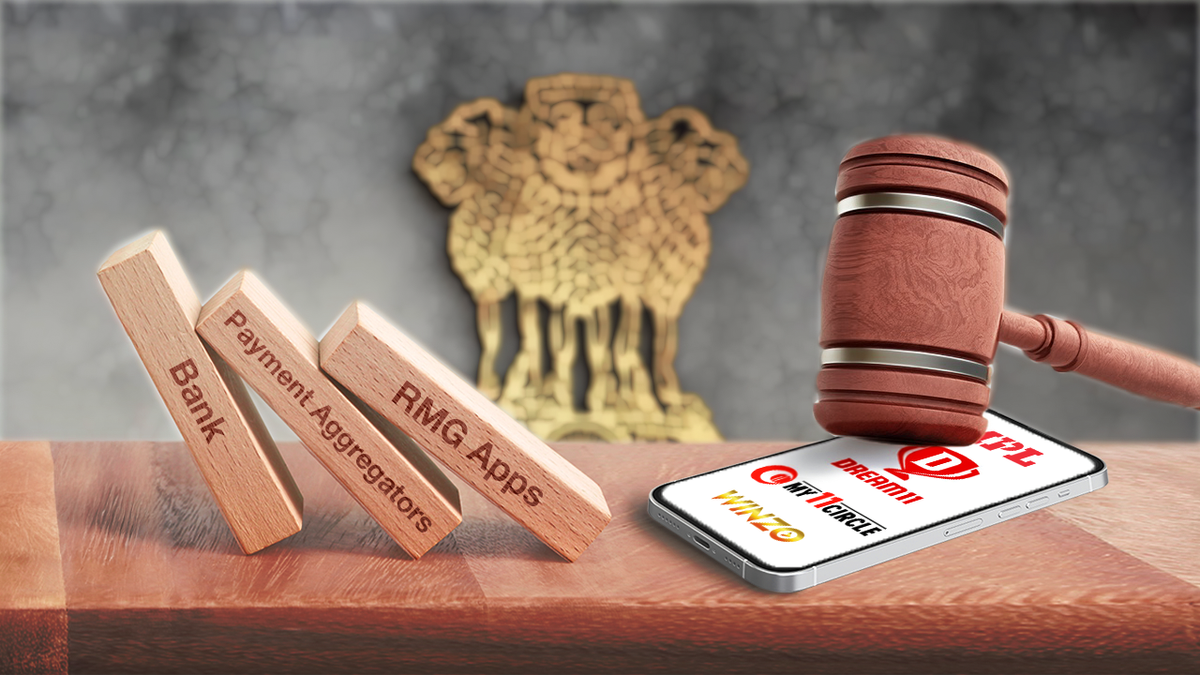The government’s blanket ban on real-money online gaming is set to affect payment gateways, many of which drew a significant portion of their revenues from the sector. According to industry experts, gaming contributed between 15% and 20% of volumes and 40–50% for some processors.
“Gaming was not just large in size; it was high-yielding. For a few players, half the business has gone overnight,” said an industry insider familiar with the company’s operations.
Real-money gaming was among the most lucrative categories for payment firms due to repeat transactions and higher MDRs compared to e-commerce and utilities. With the segment now wiped out, insiders expect the shake-up to trigger consolidation. Smaller processors that built their books on gaming inflows are staring at survival issues, while larger players such as Razorpay, PayU, and Cashfree may cushion the impact with more diversified portfolios.
“Consolidation will definitely happen. This is a demonetisation-like moment for payment processors,” said a person aware of the matter.
As per Entrackr’s estimates, the impact is visible across three fronts. On the payout side, gaming companies such as Dream11, MPL, Winzo, Mycircle11, and others have to maintain separate bank setups to transfer winnings, facilitated by gateways like Cashfree and Razorpay that charge fees for managing these accounts. That stream has now dried up.
Responding to Entrackr’s queries, a Razorpay spokesperson said, “RMG doesn’t contribute significantly to Razorpay’s TPV and revenues. Hence, the impact on Razorpay has been negligible. The industry is around 15-20k Cr in monthly transaction volume, Razorpay’s share is around 500cr from that.” “Gaming has been one of the most exciting digital sectors in India, and we have always supported innovation. However, it represents only a very small fraction of Razorpay’s overall business. As the online gaming industry pivots and adapts, we’ll continue to explore how we can work with them in the future.”
Sharing a similar view, a Cashfree spokesperson said, “Our merchant portfolio is highly diversified, with our largest volumes coming from sectors such as ecommerce, BFSI, travel, and tourism. Real-money gaming companies account for only a very small proportion of our overall business. Therefore, we do not expect the government’s ban to have any material impact on our revenues or payment volumes.”
On the collection side, users deposited money into gaming wallets through UPI, cards, and wallets, generating heavy volumes for PhonePe, Paytm, Razorpay, PayU, Easebuzz, and others. These inflows have stopped overnight.
“As a matter of fact, Easebuzz has very limited exposure to gaming businesses, with less than 2% of our overall annual GTV. Hence, we don’t see any noticeable impact on our revenues. He added, The “Majority of our book is contributed by the core sectors of the economy, like 50% of revenues come from BFSI, 25% from retail, 20% from education, and the rest from sectors like real estate, travel & tourism etc,” said an Easebuzz spokesperson.
A third layer is compliance risk; According to the source requesting anonymity, many gateways also service grey-area gaming merchants, and are now under pressure to ensure no illegal or offshore flows slip through.
The ban is also expected to intensify competition. Gateways are likely to cut prices to woo merchants in other categories, such as D2C, subscriptions, and SaaS. Even partner banks that earlier shared nodal accounts with processors are now competing directly for the same merchants. “Price cuts are inevitable, and banks themselves are now eyeing this space more aggressively,” said a senior official at a payment gateway.
Queries sent to Yes Bank reamined unanswered untill the publication of the story.
According to NPCI data, digital goods gaming recorded 1,610 million (1.6 billion) transactions worth Rs 41,000 crore via UPI between April and July 2025. A significant portion of this is likely attributable to real-money gaming. In July alone, the sector processed 351 million transactions valued at Rs 10,076 crore. These figures reflect only the licensed gaming platforms; however, several firms disguised as e-commerce or D2C businesses were also running gaming operations to bypass compliance. “If you add those, the actual size of the market would be almost double of the reported numbers,” said a source. Industry insiders added that Yes Bank bore the largest exposure, facilitating more than 60% of these flows.
Industry watchers warn that some gaming transactions could now move to offshore platforms or even crypto channels. This would not only take business away from Indian payment firms but also increase compliance risks. “Some volumes may shift to unregulated networks, and that’s a clear risk for the ecosystem,” said a person directly involved in payment processing for gaming clients.
The real-money gaming market processed transactions worth lakhs of crores annually and contributed significantly to GST inflows. Its sudden disappearance will dent gateway revenues, margins, and valuations, and could also force job cuts across the ecosystem.
In the long run, the sector may consolidate into a smaller set of stronger players. For now, payment firms are scrambling to replace a business line that, until last week, was their single largest growth engine.

